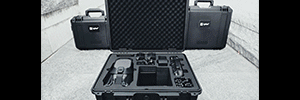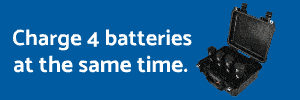So, I'm 16 years old and run a small "business" essentially buying and reselling things. I've been interested in starting a drone "business" ever since I was 13 but have been restricted because the minimum age is 16 (or 15, can't remember anymore). Anyway, I'm wondering if it would be wise to use all of the money I've made and purchase an Air 2S since I already bought the Part 107 course from Pilot Institute, or should I continue to "invest" my money until I have enough to purchase a drone and continue with the re-selling venture.
You are using an out of date browser. It may not display this or other websites correctly.
You should upgrade or use an alternative browser.
You should upgrade or use an alternative browser.
Question for the businessmen/businesswomen
- Thread starter BSauce955
- Start date
Great question and KUDOS to you for being an Entrepreneur!!
Not to diminish your hopes & dreams but a Drone Only business is a tough nut to crack today. Back in 2012-2016 it was a completely different story but those days are long gone now. Today the "cost of entry" into the Drone/UAS business is so low that just about anyone with a heartbeat can be a "professional drone operator". I'd suggest the following path:
If you do decide upon being a Professional Photographer who happens to offer Drone Services be sure to be a good photographer. It's about the CAMERA and PROCESSING not about the drone. Literally anyone can fly a drone but it takes talent to be able to compose, take, and process a high quality image that will stand out in the crowds of Drone Photographers.
Good luck and again KUDOS for being an Entrepreneur!!
Not to diminish your hopes & dreams but a Drone Only business is a tough nut to crack today. Back in 2012-2016 it was a completely different story but those days are long gone now. Today the "cost of entry" into the Drone/UAS business is so low that just about anyone with a heartbeat can be a "professional drone operator". I'd suggest the following path:
- A) Keep saving your $$ to be able to fully finance the business start up when the time comes. Starting off in debt is a bad foundation. A well established business is a lot more expensive to start up (legally) than just buying the drone. Website, Marketing, Licenses (business), Insurance etc all adds up.
- B) Take the time to get some business training and create/develop a fully detailed Business Plan. Not the one/two page template you can get online. Our business plan is over 70 pages long and details every aspect of our business included marketing, competition, price schemes and or course finances of our business. A well prepared business plan can save you a TON of $$ going forward.
- C) Instead of being a "Drone Business" work on either being a much broader business (photography including ground, video, 3D tours etc) or find a NICHE part of the industry that suits you well (THERMAL inspections) and get certified in that field so you can be a Subject Matter Expert.
If you do decide upon being a Professional Photographer who happens to offer Drone Services be sure to be a good photographer. It's about the CAMERA and PROCESSING not about the drone. Literally anyone can fly a drone but it takes talent to be able to compose, take, and process a high quality image that will stand out in the crowds of Drone Photographers.
Good luck and again KUDOS for being an Entrepreneur!!
vindibona1
Well-Known Member
- Joined
- Jun 21, 2020
- Messages
- 3,977
- Reactions
- 3,962
Congratulations on your entrepreneurial spirit. Going into the future I think your generation is going to have to secure your own futures and not depend on some corporation whose only concern is what you can do for them today and disregards all your past contributions. It's that way even now, but didn't used to be. Don't give up your resale business just yet. That and drone imaging are not mutually exclusive. And as pointed out it will take you awhile to build up any kind of clientele. How will college help or disrupt your momentum if you start now?
I second almost everything that @Big Al 454 said, but with one exception. It isn't primarily about the camera and processing, but your IMAGING (photo/video) skills and vision. In other words, training to be a photographer and videographer first and foremost. I have trained many photographers and their questions inevitably revolved around technical details and I have always pushed them to concentrate on the image and vision first, then figure out the technical details. And yes, there will be some technical training needed, but it has been my experience that learning what you want to do first will be the pathway to figuring out how to do it with whatever equipment you own.
Good luck.
I second almost everything that @Big Al 454 said, but with one exception. It isn't primarily about the camera and processing, but your IMAGING (photo/video) skills and vision. In other words, training to be a photographer and videographer first and foremost. I have trained many photographers and their questions inevitably revolved around technical details and I have always pushed them to concentrate on the image and vision first, then figure out the technical details. And yes, there will be some technical training needed, but it has been my experience that learning what you want to do first will be the pathway to figuring out how to do it with whatever equipment you own.
Good luck.
CanadaDrone
Well-Known Member
- Joined
- May 9, 2018
- Messages
- 2,182
- Reactions
- 2,069
I am a professional photographer, I occasionally teach photography classes in my area, and I have my own business. That being said, none of that is my primary source of income because it's simply not lucrative (that should tell you something right there if you are thinking of this more as a long-term careerSo, I'm 16 years old and run a small "business" essentially buying and reselling things. I've been interested in starting a drone "business" ever since I was 13 but have been restricted because the minimum age is 16 (or 15, can't remember anymore). Anyway, I'm wondering if it would be wise to use all of the money I've made and purchase an Air 2S since I already bought the Part 107 course from Pilot Institute, or should I continue to "invest" my money until I have enough to purchase a drone and continue with the re-selling venture.
The best advice I can give is the following as most of it applies to drone usage as well:
1) Everyone and their dog can buy a drone (or camera) and start charging money for services, and there will always be someone cheaper than you. You need to find a way to stand out, and you need to be really good or people will just move on to the next option. If you try to stand out by being cheap, you are the only one who loses in that scenario because it's very time consuming work. In my opinion you should not start a business without confidence that you are as good or better than the competition in your area, otherwise what incentive do people have to use your services. YouTube is an incredible resource for everything from technical training to editing skills to compositions and story telling - there is no need to pay a dime for courses unless you are the type that cannot easily learn outside of a classroom environment.
2) You need an extensive portfolio - think of it from the point of a view as a customer. Why should they pick you over the other 100 people offering the same thing in your area? How will they know what kind of end result to expect? Try to think of reasons people may not choose to use your services, and figure out ways to remedy that. Know your competition and have an impressive portfolio.
3) You need good marketing if you want business beyond word-of-mouth. This means an excellent website, a social media presence, and good search engine optimization. Invest in a website domain name and a matching email so everything looks professional (eg. name(at)Bsauceimages.com). Business cards are dirt cheap and you can use online services like fiverr to have branding/logos made up for next to nothing. If you don't want a lot of business because you are also focusing on school, for example, then this is less important but you should at minimum have a website. Wix and Squarespace are cheap and excellent - you can make a very professional looking website easily with their templates.
4) You need to be very good at editing / post processing. Most people overlook this and it is by far the most difficult and time consuming aspect of any kind of photography or videography. This is also the best opportunity to make yourself stand out and a big part of what can potentially set you apart from the competition. This also means an investment in a PC capable of doing so quickly (time is money) and the appropriate backup solutions (something like Blackblaze is ideal and very cheap). You never want to be delivering straight-out-of-camera photos or footage - anyone can do that.
5) Equipment absolutely does matter. Good composition and whatnot can only take you so far (and are the easiest to learn in my experience - YMMV) but things like post processing leeway are greatly affected by having the right equipment for the job and if clients end up wanting prints/enlargements it becomes even more important to be using the right equipment. This goes hand-in-hand with post processing skills. The same goes for the PC side if you value your time while editing. Also, in my experience anyway, most clients expect you to be using professional-grade equipment if they're paying you for work and your competition likely will be using job-appropriate equipment as well. This doesn't mean you need to have go out and spend $15K on an Inspire2 setup, but make sure you are using quality equipment that does not hold you back in any area, especially in post processing. The Air2S is a good start for sure.
Also, just being honest, some people are going to have a problem associating your age with quality work, and the best tool you can have to overcome that is an outstanding portfolio. This means lots of work before you start charging money for your services to prove to customers that you're worth their money. You can also offer free or extremely cheap work for practice and portfolio building, as well as getting your name out there.
Anyways, good for you for coming on here and trying to learn before just jumping into something. You're already ahead of many others in that respect. I wish you the best of luck and feel free to reach out anytime.
vindibona1
Well-Known Member
- Joined
- Jun 21, 2020
- Messages
- 3,977
- Reactions
- 3,962
I'd like to comment and reinforce some of the points that @CanadaDrone noted above.... the number of people making good money on photography/videography of any kind is extremely small relative to the number of people doing it. That being said, as a side gig or something like that, it's much more reasonable, especially if you enjoy it.
The best advice I can give is the following as most of it applies to drone usage as well:
1) ... You need to find a way to stand out, and you need to be really good... If you try to stand out by being cheap, you are the only one who loses in that scenario because it's very time consuming work.
2) You need an extensive portfolio - think of it from the point of a view as a customer. Why should they pick you over the other 100 people offering the same thing in your area? How will they know what kind of end result to expect? Try to think of reasons people may not choose to use your services, and figure out ways to remedy that. Know your competition and have an impressive portfolio.
3) You need good marketing if you want business beyond word-of-mouth.
4) You need to be very good at editing / post processing. Most people overlook this and it is by far the most difficult and time consuming aspect of any kind of photography or videography.
5) Equipment absolutely does matter.
First, while he is right that the number of folks making real money on photo/video service is disproportionately small, that's because they often fail to follow the rules that CanadaDrone outlined.
1) You need to be really good. This is true. I've been in the photo/video business since 1984, started when I was working another full time job until I was so busy I couldn't do both. I fed my family off of my business, put away retirement savings, now (mostly) retired and never looked back. Most people think of "professionals" as those who take money for their work. I disagree. My definition of a professional is BEING ABLE TO DO A GOOD JOB ON MY WORST DAY.
Here is my secret to how I supercharged my learning...
There was a local photographer in town that had a few displays hanging in various businesses. His work was super gorgeous, just what I wanted to be able to do. So one day I called him up and told him I would work for him for free- if he would teach me. I assisted him on several jobs and he taught me everything I needed to take off on my own, including developing, color printing, retouching (on actual film and paper back in those days). His training provided the foundation for a 30+ year career as a full time photographer.
2-3) Yes a portfolio is crucial. It is part of a marketing aspect. You will need a good website and online presence. Take time to look at others' websites and key in on the ones you love and try to develop your own in a similar style key (without straight-out copying). Develop a logo and something that you can be recognized by which would be incorporated in all your materials. Also, join professional organizations (which offer a lot of educational things) if they'll let a high-schooler join.
4) Editing and working after the shoot is critical. It can make or break you. You need to become an expert in this area as well as shooting. These days you will need to learn both photography and video editing. You'll have to keep at it as it doesn't happen in a day. As far as video, you should study film making and with photography understanding WHAT to retouch and adjust is even more important than how you do it. Start working with Photoshop or cheaper equivalent asap and keep working at it. It will help your video color grading skills.
5) Equipment does matter.... BUT ONLY TO A POINT. The skill in how you use your gear is far more important. Need proof? Look at the iPhone ads that show professionally looking videos and photos. Obviously full on pro gear will be more flexible, but the weak link in the chain is almost always the photographers/videographers skill level.
I hope I've provided some additional information on top of what CanadaDrone put so well.
IMPORTANT EDIT!!!..... Pricing: This is tricky because you may need to start off with lower pricing to get business. The downside of that is if you decide you've progressed to the point where you can command more money you will leave your old client base behind and start from scratch developing a new client base. You need to know where you want to be in the market place. It's better to be at the lower end of the upper price clientele than being at the higher end competing with cheap competitors. Your work and business acumen and contacts will dictate where you can place yourself in the market. One more universal piece of advice... TARGET WHERE THE MONEY IS.
Good luck.
Last edited:
What has been shared above is good advice… on conventional ideas about the goals of “drone business.” Conventionally, that means building up to work that first pays the bills and then quickly generates net income for the operator... before the seed money runs out. Longer term, is stable and sustainable, and perhaps, for some, can be scaled up to hire others. Are those your goals?
When I was 15 or 16, with a lot of hobby/art B&W still photography under my belt, owning midrange gear, I walked into the largest sound company in the city I lived in, and said that if they would give me backstage passes, I would sell them 8x10 prints of headline performers for $10 each. In today’s dollars that’s about $65 per the internet.
I went to some concerts. I took some photos. I sold some photos, maybe 5 or 6 per concert. When we moved to another city I did it again with another sound co.
This was successful for a while!
But, it depends on what you call success. For me at the time, success was pocket money (my parents provided for my basic needs and more), free concerts, *on-stage and back-stage access!*, and an opportunity to be involved in a way that supported developing my eye for composition, my darkroom skills, ability to navigate the complex environment of concerts by national acts, and the business of getting the work done and selling photos.
I had some successes. I had some failures. I learned a lot. It was a great occasional gig as a 15 to 17 year old.
So, for me, that was success. What does success mean to you? Maybe it’s exactly what’s been outlined previously in this thread. Maybe it’s more like my teen experience. Maybe it’s something completely different than any of us have written about.
What is success? This is a question even for old fardts to ask themselves when embarking on something new. What is success? How will you know when you’ve achieved it? Recognizing these goals also brings freedom to recognize when it’s time to change them, to change your idea of what success is.
Recently I was working with a group of college faculty to design a new video production degree. We were debating whether to include a still photography class as a first-term requirement. It turned out that we all had early experience in still photography and a shared sense that it was our gateway to what we are doing now in pro film/video and education.
In other words, that early concert photo “business” was a foundational experience in my current success in digital media, even though concert photography was nothing like the business success described in earlier posts on this thread.
What is success for you?
When I was 15 or 16, with a lot of hobby/art B&W still photography under my belt, owning midrange gear, I walked into the largest sound company in the city I lived in, and said that if they would give me backstage passes, I would sell them 8x10 prints of headline performers for $10 each. In today’s dollars that’s about $65 per the internet.
I went to some concerts. I took some photos. I sold some photos, maybe 5 or 6 per concert. When we moved to another city I did it again with another sound co.
This was successful for a while!
But, it depends on what you call success. For me at the time, success was pocket money (my parents provided for my basic needs and more), free concerts, *on-stage and back-stage access!*, and an opportunity to be involved in a way that supported developing my eye for composition, my darkroom skills, ability to navigate the complex environment of concerts by national acts, and the business of getting the work done and selling photos.
I had some successes. I had some failures. I learned a lot. It was a great occasional gig as a 15 to 17 year old.
So, for me, that was success. What does success mean to you? Maybe it’s exactly what’s been outlined previously in this thread. Maybe it’s more like my teen experience. Maybe it’s something completely different than any of us have written about.
What is success? This is a question even for old fardts to ask themselves when embarking on something new. What is success? How will you know when you’ve achieved it? Recognizing these goals also brings freedom to recognize when it’s time to change them, to change your idea of what success is.
Recently I was working with a group of college faculty to design a new video production degree. We were debating whether to include a still photography class as a first-term requirement. It turned out that we all had early experience in still photography and a shared sense that it was our gateway to what we are doing now in pro film/video and education.
In other words, that early concert photo “business” was a foundational experience in my current success in digital media, even though concert photography was nothing like the business success described in earlier posts on this thread.
What is success for you?
vindibona1
Well-Known Member
- Joined
- Jun 21, 2020
- Messages
- 3,977
- Reactions
- 3,962
Photography IS the foundation of both still and video/filming. What makes photography so essential is that when you study photography the images are freeze framed for study and contemplation and learning. There are so many elements learned in photography that crossover into video, but I don't think so much the other way around. As an example, it's easy to analyze composition of a still image, but when you add motion it is not so easy to dissect. And after learning composition in stills, going forward to video, keeping good composition in the frame as things moves becomes second nature. Photography can teach a ton about color correction which then can be expanded into video color grading. I found moving from stills to video is almost seamless, though I have to believe that learning video first and then delving into stills is often a more difficult process..
In other words, that early concert photo “business” was a foundational experience in my current success in digital media, even though concert photography was nothing like the business success described in earlier posts on this thread.
One more thing that we haven't touched upon... Audio. Good video editing requires at least basic audio skills. And if you think about it, subconsciously audio gets more attention than we give it credit for. I could write a ton about that.
I feel like this thread should be pinned up somewhere. Thank you everyone for your exceptional advice. I guess I'll hang on to my "business" for a while more before attempting another.
Cheers!
Cheers!
Similar threads
- Replies
- 10
- Views
- 636
- Replies
- 25
- Views
- 4K
DJI Drone Deals
1. Mini 2
2. Mini 3 Pro
3. Mini 4 Pro
4. Air 2s
5. Air 3
6. Avata 2
7. Mavic 3 Pro
8. Mavic 3 Classic
2. Mini 3 Pro
3. Mini 4 Pro
4. Air 2s
5. Air 3
6. Avata 2
7. Mavic 3 Pro
8. Mavic 3 Classic
New Threads
-
-
After TikTok ban passage, the prospect of a DJI ban is looking more likely
- Started by rickmurray1989
- Replies: 6
-
Mini 4 Posting for posterity, my first Hyperlapse
- Started by Feek
- Replies: 0
-
2 Pro Exploring the Fire Mine: Secret tunnels and dark arcades
- Started by wind-up
- Replies: 0
-












